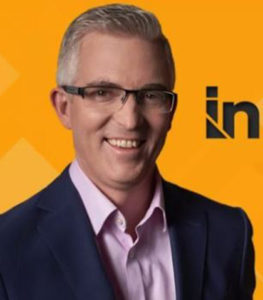Diversity in Australia’s media under scrutiny
The Black Lives Matter movement has shone a spotlight on a lack of diversity in Australia’s media sector.
And recent research by Deakin University academics found that mainstream media often reflected negative views of minority communities.
 The study analysed 1,366 media articles, examining the sentiment towards minority communities in them. It found that over a third of hard news stories contained negative sentiments towards minority communities, while more than half of the editorials and commentary pieces portrayed minority communities in a negative light.
The study analysed 1,366 media articles, examining the sentiment towards minority communities in them. It found that over a third of hard news stories contained negative sentiments towards minority communities, while more than half of the editorials and commentary pieces portrayed minority communities in a negative light.
Also, a new PwC report says a lack of diversity in Australia’s media and entertainment workforce in terms of ethnicity, gender, age and thinking is dragging on the industry’s growth.
And, in just the last month, there have been a spate of examples of how the media needs to work harder to achieve more diverse representation. (See the links below)
For instance, the ABC’s Insiders program was criticised for having no people of colour on the program for the last ten years.
The Melbourne Press Club has been criticised for failing to elect a single person of colour in recent elections.
And the Age attracted criticism for having only one Indigenous reporter its 166-year history.
Then there was Sky News host Peta Credlin falsely blaming South-Sudanese Australians for the recent rise in Victoria’s COVID-19 cases and later apologising.
And Channel 9’s embarrassing with a protestor at a Black Lives Matter protest in Los Angeles.
The media is an outrider in the concept of Australia as a multicultural society. One in four of Australia’s 25 million people were born overseas, 46 per cent have at least one parent who was born overseas and nearly 20 per cent speak a language other than English at home.
Yet, the PwC report found 82.7 per cent of Australia’s media workers are monolingual and speak only English at home. Broadcast radio was even more homogeneous, with on-air talent being 75 per cent male, white and over 35.
Some media organisations are beginning to take the challenge of diversity and representation seriously. The ABC and SBS publish regular diversity reports.
In the ABC’s Diversity and Inclusion Plan 2019-22, Managing Director David Anderson writes: “If we want our content to authentically reflect and appeal to all Australians, we need to ensure our people – both on-air and behind the scenes – are as diverse as the Australian community we serve”.
Diversity and inclusion are long-standing challenges in Australia, and there is admittedly no quick fix. It requires sustained, multi-pronged initiatives that provide practical pathways for diverse journalists and storytellers to get into the industry and, once in, to get ahead.
RMIT University Associate Lecturer in broadcast journalism Janak Rogers says there are practical steps media organisations can take to start to change their cultures.
“Providing media training for CALD journalists, storytellers and communities will enable them to have greater ownership and agency to tell their own stories, and greater employment opportunities in the industry,” Mr Rogers said.
“Establish better networks between the media industry and CALD representative bodies to better represent CALD experience and to facilitate opportunities for emerging CALD journalists, is another positive initiative,” he said.
“And expanding support for emerging CALD student journalists with scholarships, mentorships, cadetships, internships and other opportunities to help them get a foot in the door and gain experience, is also a key move,” Mr Rogers said.
He said holding more events to bring CALD students together with media industry practitioners to recruit more of them into the profession and provide pathways into employment, and; improving cultural literacy training programs and audits for diversity to better understand the gaps in institutional knowledge and the make-up of staff would also help.
“But perhaps most important is listen to culturally and linguistically diverse people on what the problems are and take seriously their ideas on how to fix them,” Mr Rogers said.
https://junkee.com/insiders-abc-diversity-problem/257124
https://twitter.com/TheTodayShow/status/1266880924886720513?s=20












